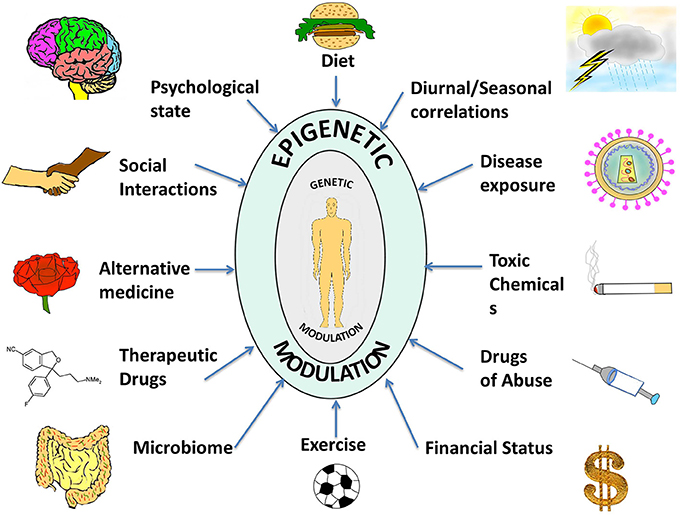Additional questions - Epigenetics and trauma
Epigenetics and Mental Illness: The Legacy of Trauma
** If you have further interest in the topic, I highly recommend this video here: https://www.osmosis.org/learn/Epigenetics **
Introduction
The field of epigenetics explores how environmental factors—such as stress, trauma, and adversity—can alter gene expression without changing the DNA sequence itself. One of the most profound areas of study is how early-life stress and intergenerational trauma shape mental health outcomes across generations.
Dr. Gabor Maté, a renowned physician and trauma expert, has extensively explored the connection between childhood adversity, epigenetics, and mental illness. His own early-life experiences—born in Hungary during the Holocaust and separated from his mother as an infant—have informed his work on how generational trauma imprints itself biologically and psychologically.
How Epigenetics Works
Epigenetic mechanisms allow experiences to shape genetic activity by turning genes on or off through chemical modifications such as:
- DNA Methylation: Adding methyl groups to DNA, silencing or activating genes.
- Histone Modification: Changing the structure of DNA packaging, affecting gene accessibility.
- Non-coding RNA: Regulating gene expression post-transcriptionally.
Unlike genetic mutations, epigenetic changes can be reversible—suggesting that healing and interventions can alter their effects.
Epigenetics and Mental Health
1. Early-Life Trauma and Gene Expression
- Studies show that childhood adversity (e.g., neglect, abuse, war exposure) affects genes related to stress regulation, immune function, and brain development.
- Trauma-related changes in the glucocorticoid receptor gene (NR3C1) impact how the body responds to stress, increasing vulnerability to anxiety, PTSD, and depression.
- Holocaust survivor studies reveal epigenetic markers in both survivors and their children, indicating intergenerational transmission of trauma.
2. Generational Trauma: How Trauma is Passed Down
- Research on children of Holocaust survivors (Yehuda et al., 2016) found altered cortisol levels and stress responses, even if they never personally experienced trauma.
- Maternal stress during pregnancy (e.g., famine, war, extreme stress) can epigenetically modify the developing fetus, increasing risk for schizophrenia, bipolar disorder, and depression.
- The Dutch Hunger Winter (1944-45) study found that prenatal famine exposure altered genes related to metabolism, mental health, and neurodevelopment, with effects persisting for multiple generations.
3. Addiction, Trauma, and Epigenetics
- Dr. Gabor Maté has argued that addiction is rooted in trauma, where early emotional pain dysregulates the dopamine system, predisposing individuals to substance use disorders.
- Epigenetic studies suggest that adverse childhood experiences (ACEs) can lead to lasting changes in dopaminergic and opioid receptor systems, increasing the likelihood of addiction.
- Healing trauma through therapy, mindfulness, and connection may help reverse these epigenetic patterns.
Hope and Reversibility: Can Epigenetic Trauma Be Healed?
While epigenetic modifications can increase vulnerability to mental illness, they are not destiny. Research suggests:
- Mindfulness, psychotherapy, and social support can reshape epigenetic markers, promoting resilience.
- Physical activity, diet, and stress reduction can modulate inflammatory and stress-related genes.
- Intergenerational healing practices (community, storytelling, cultural restoration) may counteract inherited trauma.
Conclusion
Dr. Gabor Maté’s work highlights the profound impact of early-life stress and generational trauma on mental health. Epigenetics offers a biological explanation for these effects while also providing hope for healing. Understanding how life experiences shape gene expression underscores the importance of compassion, trauma-informed care, and holistic healing approaches in mental health.
References
- Recommended Links:
- https://developingchild.harvard.edu/resources/infographics/what-is-epigenetics-and-how-does-it-relate-to-child-development/
- Yehuda, R., et al. (2016). Holocaust exposure induced intergenerational effects on FKBP5 methylation. Biological Psychiatry, 80(5), 372-380.
- McGowan, P. O., et al. (2009). Epigenetic regulation of the glucocorticoid receptor in human brain associates with childhood abuse. Nature Neuroscience, 12(3), 342-348.
- Barker, D. J. (1990). The fetal and infant origins of adult disease. BMJ, 301(6761), 1111.
